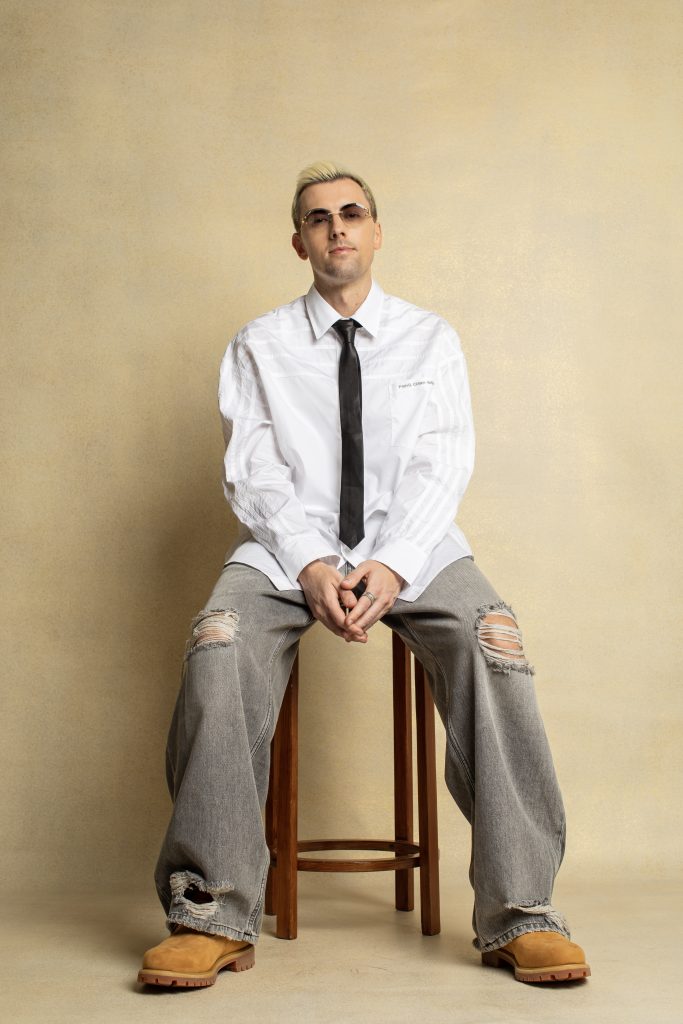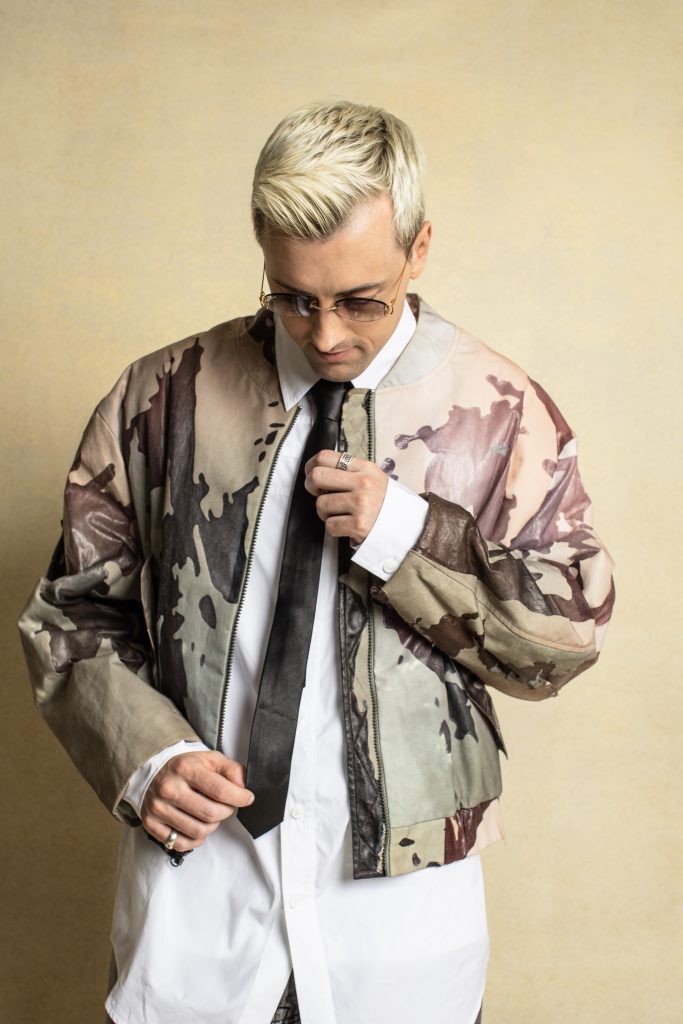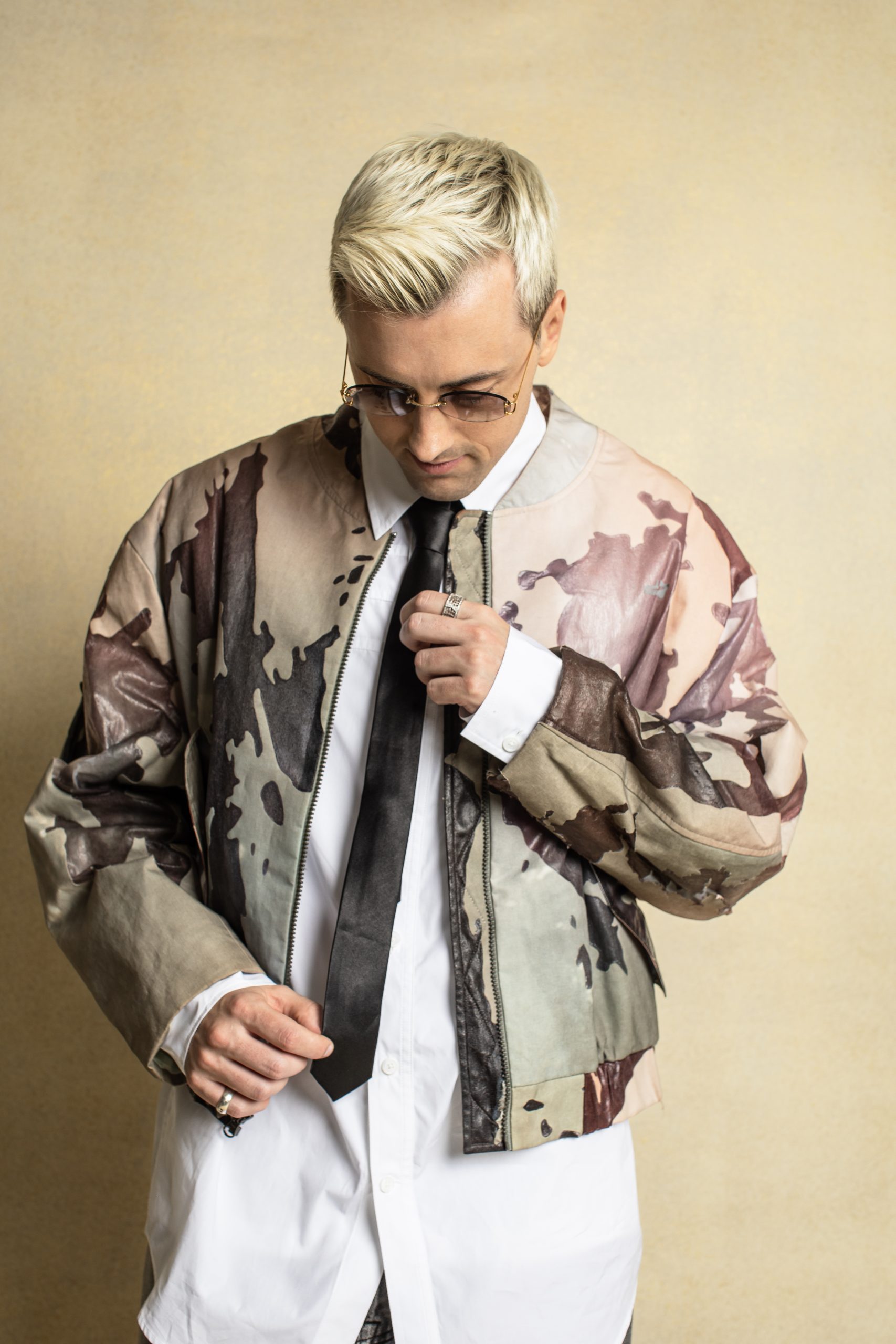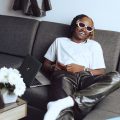Over the past few years, DJames has earned his place in music and between continents. Based in London, his sets cut across Afrobeats, Amapiano, Caribbean music, and other global club sounds—always stitched together with precision and intent. He has built a reputation for being consistent, thoughtful, and engaging on every stage he steps on.

His CULTUR FM set in 2024, the channel’s most successful set, turned heads and introduced many to his sharp mixing and music range. The clip went viral, but for those who had been paying attention, it was simply a reflection of the work he had already been putting in. DJames’ innovative approach has earned him the title of “King Of Blends,” a recognition of his ability to mix genres and create captivating musical experiences seamlessly.
In May this year, he headlined his sold-out show at London’s Outernet, a 1,700-capacity venue. It was a decisive moment that spoke to the connection he has built with listeners and the respect he has earned in the scene.
Before his astrometric popularity, DJames won the UK national final of the Red Bull 3Style DJ competition in 2019. It was a pivotal moment that validated his originality and technical skill. This achievement propelled him onto international stages, including performances at Europe’s first Major League Baseball game and Saudi Arabia’s inaugural international tennis tournament. He has since collaborated with icons like Drake, The Weeknd, and Sean Kingston, a nod to becoming one of the most influential DJs.
Outside of the booth, the “King Of Blend”, is involved in how music travels. As a curator for Beatsource, he selects African and Caribbean tracks for DJs around the world, helping shape global dance floors. His work highlights how cultural exchange does not need to dilute sound. It can, instead, spotlight it. That same thinking is reflected in his 2024 debut EP, “Grateful“, which includes collaborations with Nigerian acts like Crayon, Qing Madi, and 1da Banton.
We caught up with DJames as he spoke more about connection—to sound, to craft, and to the audiences that have grown with him.
SB: Your 2024 CULTUR FM set is the channel’s biggest ever. What do you think made it connect on that scale?
I think the success of that mix was down to me learning from 17 years of DJing, both in clubs and online. I tried to represent different sounds and eras of African and Caribbean music, and I think that variety, but also the thought process to put it all together in a way that made sense, was what people enjoyed most.
SB: You’ve been called the “King Of Blends”. What’s the mindset behind your transitions, and how do you keep them unpredictable?
The original reason I started creating edits and blends was to make my sets different. I felt like a lot of DJs started to sound the same, even as far back as 2010. I also wanted to play more dancehall and afrobeats in my open format sets, even when the club owners didn’t like it, so I would mix the vocals with hip hop beats and vice versa. Now, I feel like it’s more about creating moments for people to enjoy online and then in real life at the shows. Some of my blends and transitions have almost become songs by themselves, so people will come to see me perform those specifically. It’s still a crazy concept to me, but I’m so grateful!

SB: Your London headline show outperformed names people consider “mainstream.” What does that say to you about where DJ culture is heading?
It’s definitely an exciting time to be a DJ in this space! For me, the goal has always been to play on festival stages with a much larger production, so I’m really happy it seems to be building in that direction finally. Live performance is everything to me, it’s what keeps me excited about music. I really hope we start to see DJs creating experiences that can rival what an artist would do. I think we’re seeing DJs become brands now and build their own following away from any artist affiliation, which is something I love to see!
SB: What do you think is pulling crowds to your sets right now?
I didn’t really appreciate this until my Lagos show in December, but I think I’ve built an audience that is a reflection of me and my music taste. I think they come to hear music from the artists that I champion online, along with those viral transitions they’ve seen and have danced to in their bedroom. I’m really proud of the fact that we have never advertised ‘special guests’ or ‘and friends’ ahead of these shows, so people are really coming to see me DJ. The fact that Victony, Bella Shmuda or Crayon might perform is just a bonus!
SB: As a UK Champion DJ, what’s one misconception about DJing at this level you think people still have?
I think a lot of the time they don’t see what goes on behind the scenes or they don’t appreciate all the small details, so they can’t understand why their friend isn’t as big as another DJ. For example, I’m capable of doing a lot more technical DJ tricks than I do on TikTok, but I realized that my audience doesn’t want that. They prefer clean mixing and more musical ideas that they can duet for their own videos. I’d also say that while playing the big songs is great, you have to focus on what separates you and then work relentlessly for a decade plus in most cases. Younger DJs reach out to me all the time for advice, but they never like the answers I give!
SB: You’ve built a loyal following across Africa, Europe, the Caribbean, and North America. How do you stay culturally tuned in without losing your sound?
New music is what excites me the most, so it’s easy for me to check in every Friday and see what has been released. I also work for the Beatport group as the curator for African and Caribbean music, so that requires me to stay up to date! I’m usually listening as a curator to see if other DJs could play it, while also trying to figure out how it might work in my own sets. I really try not to overthink it these days, and just focus on what sounds good to me!

SB: You’ve worked with Crayon, Qing Madi, and 1da Banton. What makes you say “yeah, this is someone I want to build with”?
I’m a fan of every artist I’ve made music with, so that’s the first step in identifying them. I generally prefer songwriters and artists who like working with instrumentalists, as that’s a big part of my sound as a producer. Then it’s down to whether or not we click in person, and if I like how they operate. Crayon, for example, is someone who I’d been speaking to for years prior to our collaboration. I loved all his releases and also how he carried himself, so that was a perfect match for me. He gave me a great song with Avalay and was so supportive throughout the entire campaign!
SB: Your debut EP ‘Grateful’ has strong Afrobeat roots but also crosses genres. What did you want listeners to “feel” when they pressed play?
I wanted to create an EP that wouldn’t sound dated in 3 years, so I tried not to let current trends affect my production style. I leaned heavily on live instruments and artists who write meaningful and relatable songs, so hopefully I created a project that people can connect with and enjoy anywhere, anytime. I grew up listening to so many different genres, and I think that is reflected in the songs on Grateful.
SB: You’ve played historic stages — MLB Europe, Saudi Arabia’s first international tennis tournament. What did those moments teach you about reach?
I had mixed feelings to be honest. While it’s amazing to play those stages as part of a big production, and I really learned a lot, I couldn’t help but think I wanted to play them again with me as the headliner. When I started out, my goals were always centered around which artist I could open for or which brand could I align with, but I think after I opened for Drake & The Weeknd, I realized that it wasn’t enough for me. I’d much rather play to 200 people who are there for me than 65,000 who are there for baseball.
However, I’m still very grateful for those opportunities and for being able to play the music I love in those worlds. It’s something that I’m really proud of and it’s an important step in pushing the sound!
SB: Let’s talk influence. What’s something *non-musical* that’s shaped your sound?
I’d say there are three – comedy, magic and WWE. There are so many parallels between the journey of a standup comedian, magician or wrestler and that of a DJ. It’s something that has always interested me. For example, comedic timing is something that is so similar to how DJs can play something on or off beat, pause for suspense, or change direction in a heartbeat. Magicians use the art of misdirection to take you to one place, only to have you land somewhere completely different and have you thinking how you ended up there! I try to do that a lot in my sets to keep them unpredictable. With WWE, it’s the stage production and branding that is world class. The entrance song is so important in establishing how a crowd should feel about the wrestler. I’m always looking for lessons I can take from all these fields, because you can often learn so much more than you would just watching other DJs on YouTube.

SB: How are you using your roles at DJcity and Beatsource to influence what DJs play next?
The work I’ve done with them in the last 8 years is something that I don’t really talk about much online but I’m really happy with. When I first started, artists weren’t creating DJ packs and edits, often the projects would even get lost or deleted. In Nigeria I’ve helped normalize artists and labels getting these files from the engineers, but then also sending them out to DJs as it can greatly improve the chances of their song being played. The music and edits I add to DJcity are heavily curated, so DJs who might not necessarily know the genre can trust the quality of the songs. With Beatport, I curate over 100 playlists that cover a variety of sounds and possible scenarios. We have DJs who play huge clubs and festivals but also on radio, at children’s parties, weddings and lounge bars, so there is an opportunity for me to feature all kinds of music and help artists get played.
SB: What does “carving your own lane in Afrobeats” actually look like to you? Is it sound, strategy, or something else?
I don’t really think like that as far as afrobeats goes. I’m more concerned with being a part of the culture in the right way than creating something totally unique outside of it. I think with my background and history, I’m naturally going to look and sound different, so it’s not something I worry about too much. I’d rather build the best possible show and create the best music I can, then hope the rest falls into place.

